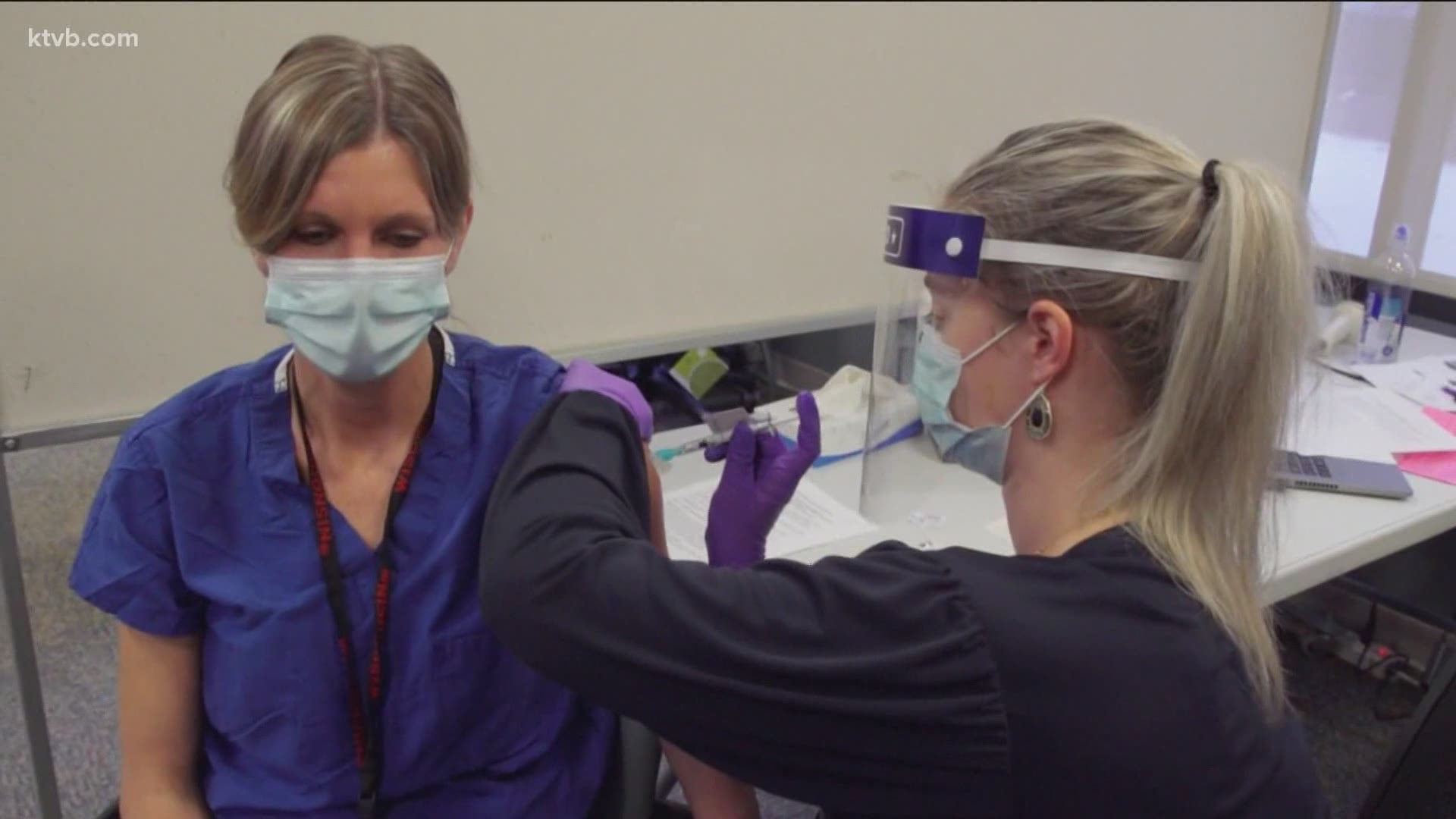BOISE, Idaho — Health experts across Idaho are beginning to speak out about the COVID-19 vaccine and answering the many questions Idahoans have about it.
On Wednesday morning, Sara Leeds, the immunization program manager for the Idaho Department of Health and Welfare, fielded questions in a live Q&A on Facebook.
"We are still recommending folks who have both doses continue to wear the mask until we know whether you can still transmit it, even though you are immune so masks are going to be part of our world for at least the near future," she said.
During the News at 4 on Wednesday, KTVB interviewed Dr. Patrice Burgess, a Saint Alphonsus doctor and the chair of Idaho's COVID-19 Vaccine Task Force.
Dr. Burgess answered viewer questions ranging from when people can start receiving the vaccine to addressing the possibility that major events will require attendees to show proof of vaccination to enter.
For when Idahoans over the age of 65 can start getting the vaccine, Dr. Burgess said the timeline is still in the works.
"We originally thought we were going to get a lot more in this first week than we actually received," she said. "So I do know that that group is right after the essential workers, but I just don't know which week that will be, but I do feel like week by week we're going to keep getting more and more vaccine and be able to roll it out again, eventually to anybody that wants."
WATCH BELOW: Saint Alphonsus doctor and chair of Idaho's Vaccine Task Force answer Idahoan's questions about the COVID-19 vaccines
Dr. Burgess also explained that it will still be some time until life goes back to normal.
"And do you need to wear a mask? Absolutely yes. And the reason for that is we're not really out of the woods until we have enough of the community immune, either through natural immunity or through the vaccine immunity, so that we stopped the community spread until that time and I suspect that will be spring or summer," she said. "We're going to still have to wear our masks, do our distancing clean surfaces, all the things that we know that we need to do."
Idaho first began receiving shipments of the new Pfizer COVID-19 vaccine on Monday.
The state should have 13,650 doses of the vaccine by the end of the week, according to the Idaho Dept. of Health and Welfare. The vaccine was sent from distributors to the Eastern Idaho Public Health District (EIPH) and St. Luke's.
"So again after the first one [shot of the vaccine], you're, you're slightly immune," Dr Burgess explained. "After the second one, about two weeks after is when you get that full response and Pfizer and Moderna both had about a 94 to 95% effectiveness, but even better than that the people that the few people that four or 5% that did get COVID didn't get the severe disease, and did not require hospitalization so that's very exciting."
On Tuesday, Southwest District Health's public preparedness manager, Ricky Bowman, said 2,000 doses of the Pfizer vaccine will be distributed this week to the district and another 2,000 doses will arrive in three weeks for the follow-up shot of the vaccine.
Dr. Burgess said the main differences between the Pfizer and Maderna vaccines are how they need to be stored.
"So they're the very similar technology as far as their mRNA vaccines, which means they're delivering messenger RNA, that then is an instruction for us to make just one of the proteins of the COVID virus," she said. "So again, not the whole virus, just a protein that we can then form antibodies to, and then those instructions are destroyed and gone away. The difference is, as you heard, Pfizer is 21 days apart and Moderna is 26 days apart. And then the other difference is the Pfizer vaccine requires ultra-cold storage, and the Moderna vaccine is more of a regular refrigeration. They both had very large trials with very good safety profiles and very good efficacy actually larger than normal trials 40 to 50,000 people participated in those trials, so feel good about both of them."
Bowman also explained that the district will receive another shipment of the vaccine in January for people other than first responders.

